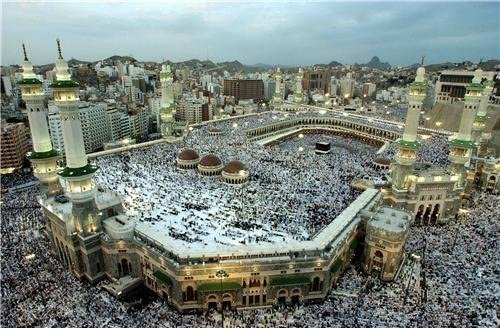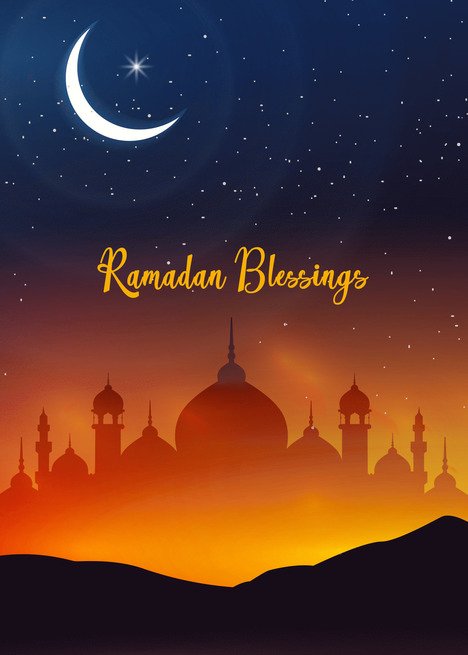"O ye who believe! Fasting is prescribed to you as it was prescribed to those before you, that ye may aquire self-restraint.” ~ Qur'an 2:183
Ramadan is the ninth and holiest month of the Islamic calendar, beginning on a date determined by the sighting of the new moon. It is a "month of blessing" marked by prayer, fasting, and charity.
Muslims look for the crescent moon in the western sky after sunset on the 29th day of Sha'ban (شَعْبَان), the month preceding Ramadan. If the crescent is sighted, the following day marks the beginning of Ramadan. But because the Islamic calendar is lunar-based, with each month beginning at the sighting of the new crescent moon, the months of Sha'ban and Ramadan, and other Islamic holidays, migrate through all four seasons.
Ramadan is believed to be derived from the Arabic word ramida or ar-ramad, meaning scorching heat or dryness. The name may refer to the heat of thirst and hunger during a fast, or because fasting burns away one’s past sins.
Ramadan is believed to be the month during which the prophet Muhammad received and memorized the words of the Quran from Allah near the holy city of Makkah (Mecca) in Saudi Arabia. Every year millions of Muslims from around the world journey to Makkah in commemoration of this sacred occasion. This journey, known as Haj, is a great achievement for Muslims, and those who complete the journey earn the right to add the title of Haji or Hajin to their name. It is the goal of every devout Muslim to make at least one journey to Makkah in his or her lifetime.
In the Muslim calendar, holidays begin on the sunset of the previous day.
Sudhoor
The sudhoor is a light meal eaten prior to daylight during Ramadan. The fast begins after this meal and resumes until sundown.
Iftar
Muslim faithful abstain from food, drink and sex from dawn to dusk during the lunar month of Ramadan.
The iftar, occuring just after sundown, is when the fast ends for the day and a halal meal may be eaten. Any type of food may be consumed, but the most popular items on the menu are honey, breads, figs, dates, fruits, and olives.
Harira, chorba or a soupy marqa are often featured in an Iftar meal. These soups are easy to digest, satisfying, economical and can be made with available meats and vegetables.
It is popular is some cultures for families to host "iftar meals", in which familes and neighbors will come for the evening meal.
Goat
Goat is a popular meat at iftar meals. Buyers are particular interested in male and female kids with all their milk teeth (i.e. not older than at 12 months). Males can be whole or castrated. Overly fat kids are discriminated against. Optimum live weight is about 60 lbs, but weaned kids from 45 - 120 lbs. are accepted by some buyers.
Ban on Public Consumption
In Saudi Arabia, a predominantly Muslim country, the Ministry of the Interior directs non-Muslim residents to refrain from eating and drinking in public in respect for the month-long holiday of Ramadan, during which observant Muslims fast from sunup to sundown. Those who eat publicly may face deportation.



